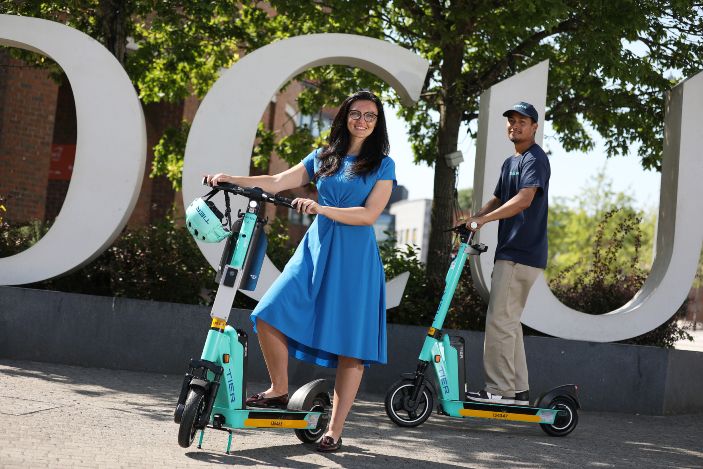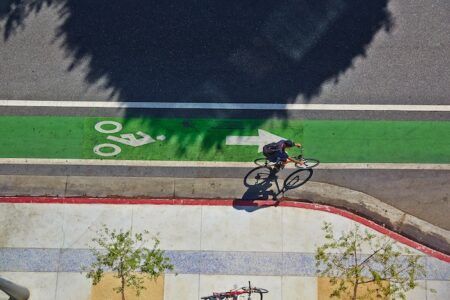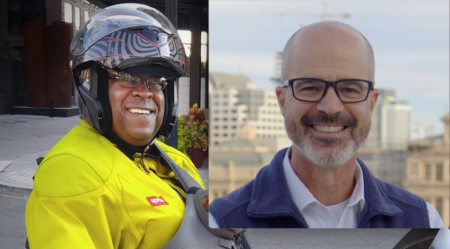Ireland’s first e-scooter trial has launched across the five campuses of Dublin City University (DCU). The trial, which will operate between the DCU campuses once legislation allows, aims to set the bar for e-scooter safety standards in Ireland and worldwide. It comes as moves are being made to make e-scooters street-legal across Ireland.
Launched by Minister Hildegarde Naughton, the e-scooter research pilot is a collaboration between e-scooter operator TIER; Irish micromobility tech platform Luna; the Insight SFI Research Centre For Data Analytics and Smart DCU (a district of Smart Dublin).
As part of the project, TIER and Luna are equipping a fleet of 30 scooters with advanced computer vision technology, enabling DCU-based Insight researchers to explore a rich new source of smart city data. With the Luna technology, TIER e-scooters can run pedestrian detection and lane segmentation algorithms, allowing the vehicles to understand how many people are in their path, as well as preventing vehicles from being used on footpaths.
In addition to being a world-first academic-industry research project focused on computer vision in e-scooters, the pilot is also Ireland’s first major structured e-scooter trial. The purpose of the research project is to simultaneously improve e-scooter safety and to explore the smart city possibilities associated with computer vision-equipped micromobility vehicles and the valuable data they can generate.

The vision data generated by the fleet will be analysed by Insight researchers, with a view to identifying smart city use cases and applications of value to local authorities, in line with the mission of Smart Dublin. The first use case will be the development of an AI model that provide cities with real-time alerts about blocked footpaths – whether the blockage is the result of a tipped over scooter, a badly parked car, a fallen tree, or other impediment.
Separately TIER and DCU will monitor the modal shift pattern from cars to e-scooters across DCU users, with a focus on reducing the university’s transport-related emissions. TIER will also explore the impact of its Energy Networkinnovation, in terms of driving footfall to local retail outlets. TIER’s unique model allows users to swap depleted e-scooter batteries – in return for free travel – at charging stations hosted in local retail outlets. Pilot data from the Energy Network in Finland reveals the average convenience store enjoys an average of €18,000 (US$21,000) of additional income as a result of TIER users entering to switch batteries.
The pilot project, which will run until early 2022, will also explore other insights, particularly around user behaviors and attitudes, which can feed into any commercial shared e-scooter schemes that may be launched in Dublin and elsewhere across Ireland in the future.
“Ireland is truly leading the way in the space of e-scooters and I very much look forward to seeing this pilot get moving across DCU campuses,” said Minister Hildegarde Naughton TD, at the launch. “This is an interesting and exciting time in transport – the innovation and momentum is palpable. It is my job now and the job of Government to play our part and progress the necessary legislation required for the safe use of e-scooters in Ireland. I look forward to seeing this pilot progress across campus and I am particularly interested in learning of its outcomes and insights, which I am certain will inform us in further progressing legislation in this space.”





